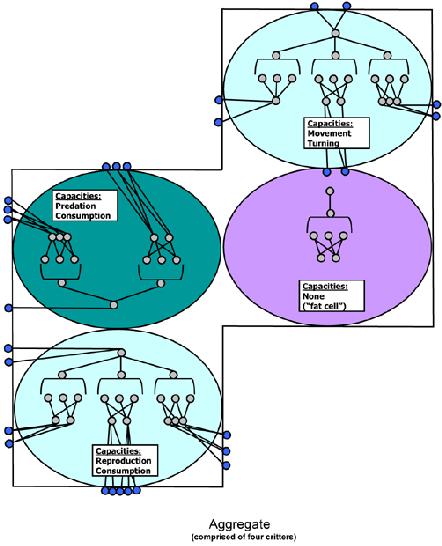
Unsurprisingly, there are various approaches to follower attraction and – for lack of a better word – follower removal. Some people, and I believe these are the people Twitter originally aimed to attract, just naturally meet people. Follow those whose tweets interest them and unfollow those whose tweets do not.
Another group of people are similar to the above, but they aim to gain as many followers as possible. I admit to belonging to this group, primarily because it gives me a much greater audience to this blog as well as significantly more opportunities for interaction and meeting people (it’s also so easy so why not do it?).
A third group aims to gain as many followers as possible since every follower is a potential buyer. If you have 50,000 followers, and you try and sell something, even if 0.1% on average buy, then it’s still 50 people – which is a lot if you compare it to other ad models (i.e. PPC).
The philosophy behind following and unfollowing is clearly intertwined. If you’re in Twitter and truly only care about interaction, then there’s no reason for you to care if you are being unfollowed (unless this offends you).
If you try and gain as many followers as possible, then you’re fully aware of the fact that if you don’t follow someone back (reciprocal following), there’s a good chance he’ll stop following you very soon. So often you see people who follow roughly the same number of people who follow them.
Personally, I believe that only those who offer truly unique and interesting tweets can expect someone to follow them and not need to follow back. For example, if you’re a celebrity (I covered this in greater detail in my post, Why Do People Follow Celebrities?) then your life is deemed interesting to your followers even if it’s completely mundane.
But even if you’re not a celebrity, but say, are a very funny guy or a very interesting person (i.e. Iconic88, one of Twitter’s treasures), then it also likely that people will continue following you because of who you are and what you say.
Alas, for most people, that is not the case. A while ago I looked at the tweets of some people I consider celebrities or experts in their respective fields. Although they may be interesting, even fascinating, in real life, their tweets are, how shall I say it, not really interesting. They often deal with the uninteresting trivia of their life (i.e. I don’t particularly find interesting what William Shatner had for lunch). It may be fun and exciting to interact with them, but normally these people also don’t interact with their followers – don’t respond to their followers’ comments, etc. I’m not just talking about people with millions of followers, but also those with a far smaller number. Some even have fewer followers than I have (and I always respond to anyone who attempts communication – not talking about DMs which are really unusable).
For the sake of fairness, I’m not sure how many people would continue follow me if I did not follow them back. I almost always tweet articles from my blog, other articles I find interesting, retweets of articles other people found interesting, blip my favorite music, and generally chat the vast majority of my time – or better phrased “interact with my followers” ;-)). So I assume if I were to, say, unfollow 90% of my followers, a great number would unfollow me. I also think it’s not unfair.
This brings me to an interesting question: so assuming one is not a celebrity or someone whose content greatly appeals to the masses. What would happen if he or she were to unfollow most of their followers? Let’s try and see.
Recently I was unfollowed by three people I was following for a long while. When I looked at their follower charts (as I like doing, since there’s always something I find interesting in this data) I noticed that all three did a mass unfollow. Note that this seems to be somewhat of a recent trend since some companies pay people who tweet and their ratio of followers to followees is one factor in determining the price they can demand (supposedly, the greater the ratio, the more of a celebrity you are – which actually does make sense).
Since I don’t want to mention any names, I’ll bring the follower charts of these three. If you have any guess who they might be, please do not comment below as I will edit the names out. This is not meant to be a personal criticism of anyone. Really.


As you can see, in the first two images, there was an immediate mass reciprocal unfollow, following by a stead steam of unfollowing. In image 1, even now, a month and half after the mass unfollow, the trend of unfollowing appears to be continuing. In other words, this person is still losing followers.
In image 2, which is much more recent, despite the smaller scale of the mass unfollow, the exact same thing appears to still be happening.

In image 3, it is a bit harder to tell since the mass unfollow has just occurred – so the trickle hasn’t started just yet – but in all likelihood, the same thing will occur.
Personally I believe that in all three cases, people have unfollowed for one or more of the following reasons:
- Just because. You unfollow me, I unfollow you. It’s not fair otherwise.
- Automatic unfollow: you unfollow me, my autopilot program detects this after X days and unfollows you.
- You’re boring, and suddenly I realized that now I have no more incentive to follow you, ergo, you’re gone.
Despite the fact that in none of the cases 100% or even 50% of the people have unfollowed the person, the trend in all cases appears to be negative, so there’s no reason to assume it’ll stop – though of course there isn’t enough data to support this theory. Personally, I don’t think it will stop for exactly the above reasons. I think most people simply aren’t aware that they are no longer being unfollowed, and the slow trickle of unfollowing occurs because one by one they discover that.
My own personal reaction to this was to immediately unfollow all three once I realized I am being unfollowed. As I discovered, it seems I did not follow them for their content as I do not even notice their tweets are gone. Otherwise I would’ve stuck with them.
Any thoughts?







